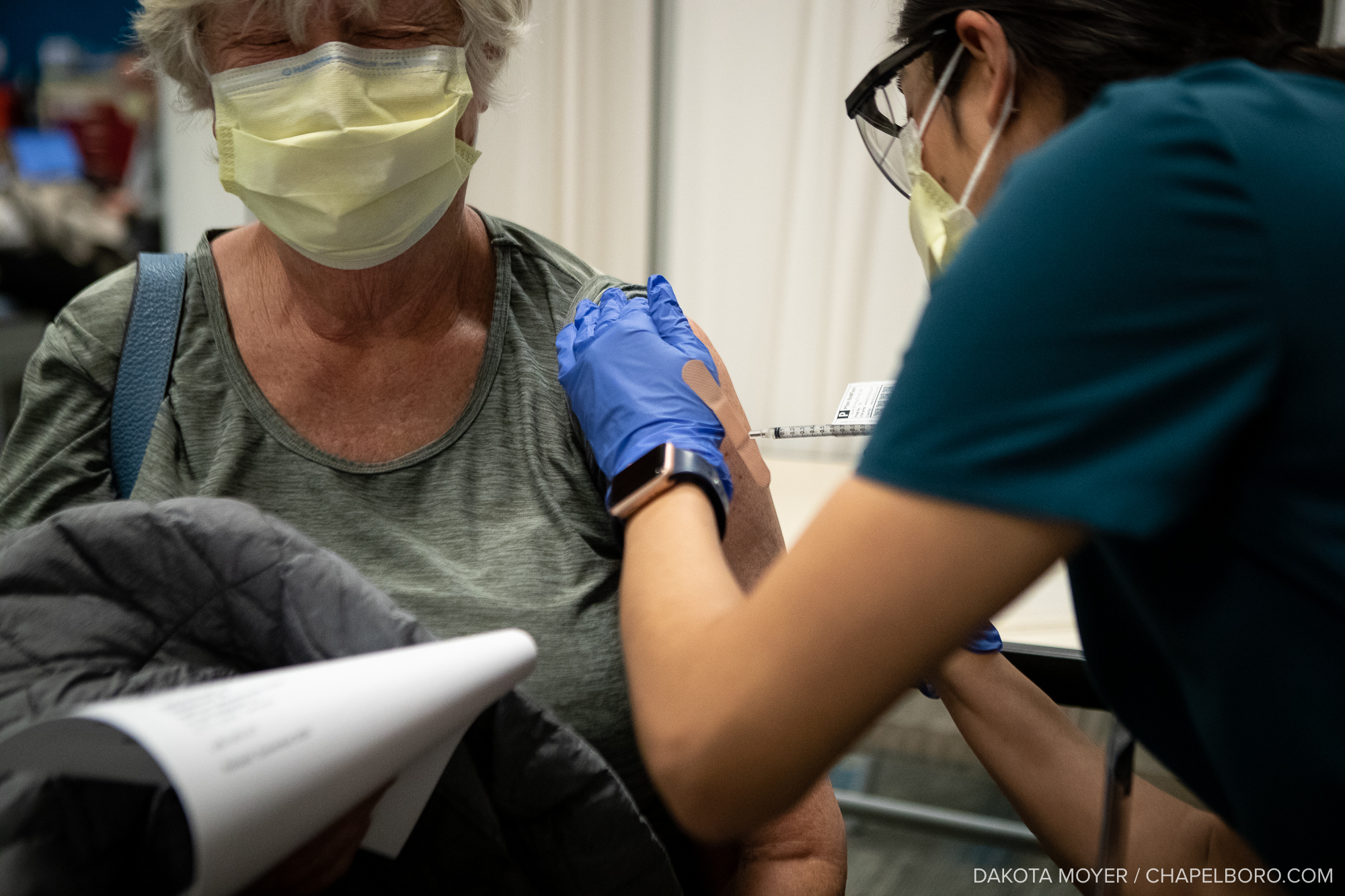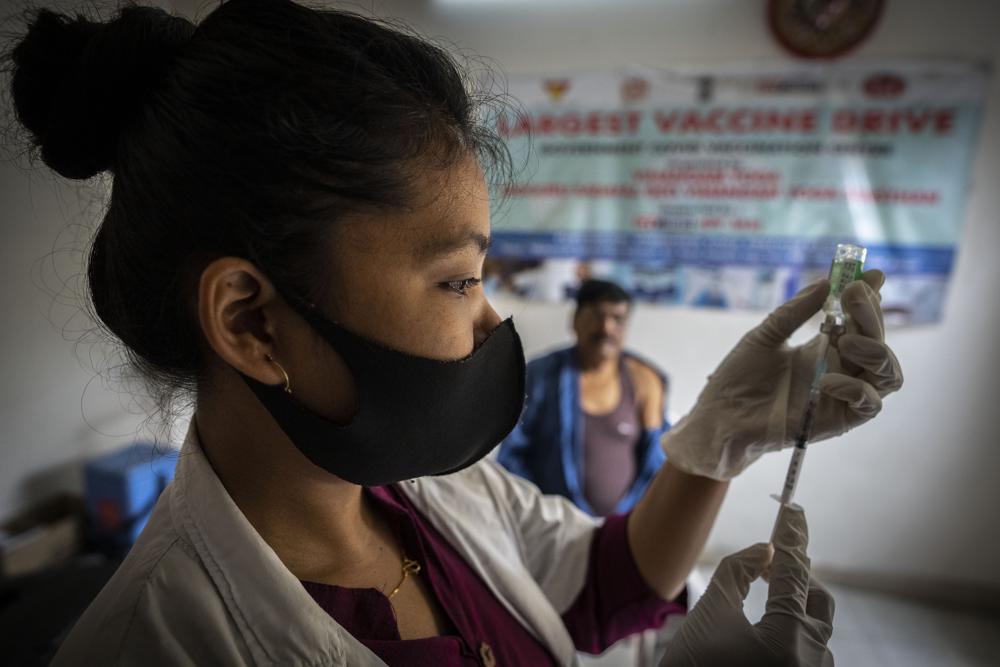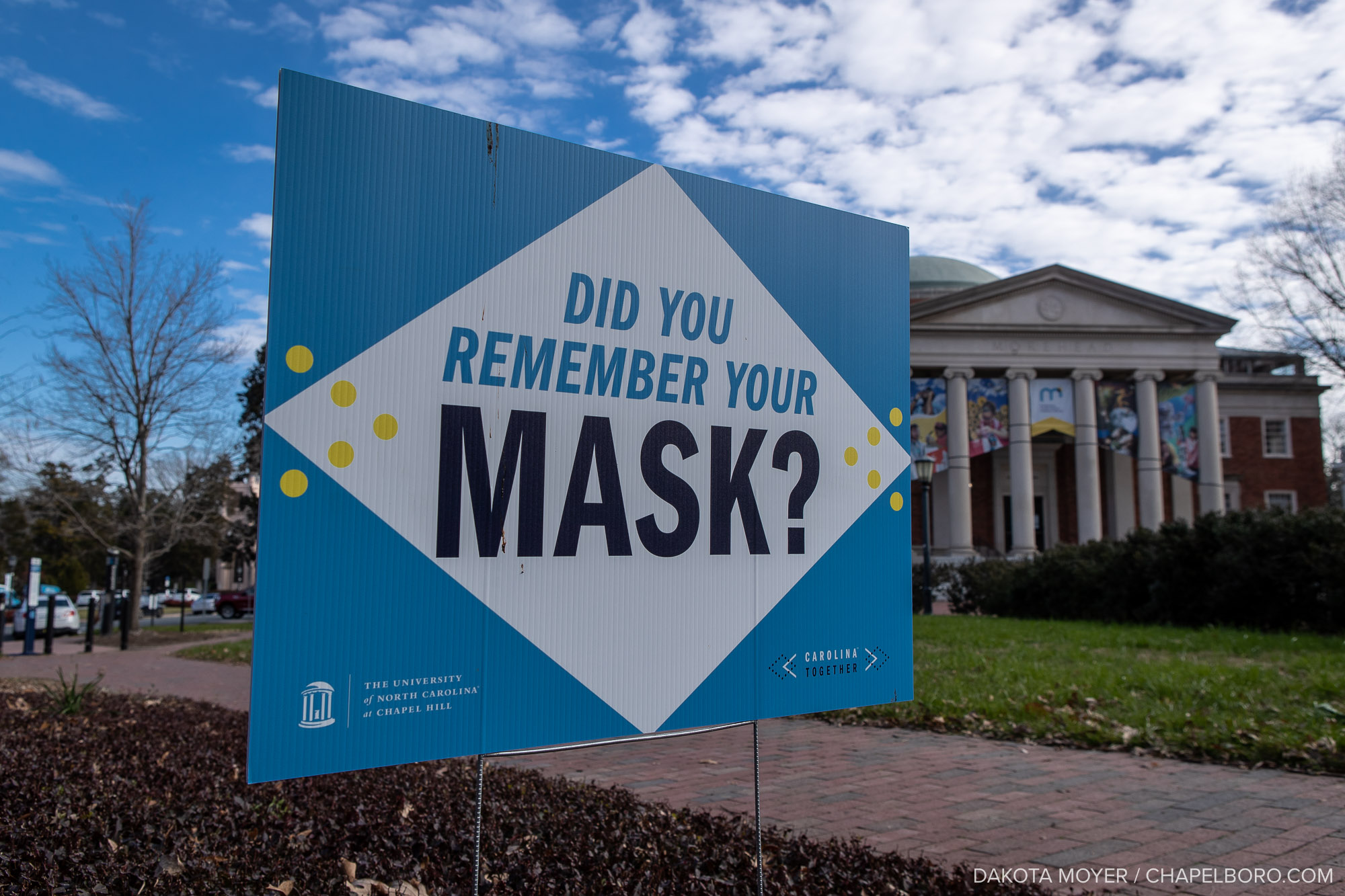A new study led by UNC raises concerns about the impact of obesity on the effectiveness of a future COVID-19 vaccine.
A review of COVID-19 studies reveals a significant connection between two health crises: coronavirus and obesity.
A team of researchers at UNC’s Gillings School of Global Public Health collaborated with World Bank health on a paper now published in Obesity Reviews.
In this paper, immunological and biomedical data was reviewed, providing a detailed layout of how obesity is linked with an increased risk of COVID-19 – as well as an increased likelihood of developing more severe complications from the virus.
They found that those with a BMI over 30 were 113 percent more likely to be hospitalized, 74 percent more likely to be admitted to the intensive care unit and had a 48 percent higher risk of death from the virus.
According to this UNC study, obesity is already associated with numerous underlying risk factors for COVID-19, including hypertension, heart disease, type 2 diabetes, and chronic kidney and liver disease.
Metabolic changes caused by obesity – such as insulin resistance and inflammation – make it difficult for individuals with obesity to fight some infections. This is a trend that can be seen in other infectious diseases as well, such as influenza and hepatitis.
Roughly 40 percent of Americans are obese and the pandemic’s resulting lock-down has led to a number of conditions that make it harder for individuals to achieve or sustain a healthy weight.
The study notes that the ability to access healthy foods has exacerbated these health problems. Economic hardships put those who are already food insecure at further risk, making them more vulnerable to conditions that can arise from consuming unhealthy foods.
To combat the potentially severe effects that stem from COVID-19 and obesity, UNC researchers note that healthy food policies – such as taxing foods that are high in sugar – can play a supportive and important role in the mitigation of COVID-19 mortality moving forward.
Read more about the study here.
Chapelboro.com does not charge subscription fees. You can support local journalism and our mission to serve the community. Contribute today – every single dollar matters.
Related Stories
‹

5 Things We Know and Still Don’t Know About COVID, 5 Years After It AppearedCOVID-19 is less deadly than it was in the pandemic’s early days. But the virus is evolving, meaning scientists must track it closely.

New Coronavirus Mutant Raises Concerns in India and BeyondWritten by LAURA UNGAR and ANIRUDDHA GHOSAL The quickly changing coronavirus has spawned yet another super contagious omicron mutant that’s worrying scientists as it gains ground in India and pops up in numerous other countries, including the United States. Scientists say the variant – called BA.2.75 – may be able to spread rapidly and get […]

Tracking the Number of Coronavirus Cases in North Carolina 
COVID-19 Cluster Reported at UNC's Avery Residence HallUNC has identified a cluster of COVID-19 cases at Avery Residence Hall on campus. This is the second COVID-19 cluster identified at UNC in 2021 and the first since the spring semester began on January 19. Earlier this month, a cluster was identified at Carmichael Residence Hall between students who lived on campus during winter […]

Mack Brown, Roy Williams Receive First Doses of the COVID-19 VaccineUNC coaches Mack Brown and Roy Williams have received their first dose of the COVID-19 vaccine, the university confirmed on Friday. “I think that everyone who has the opportunity to take the vaccination should,” Williams said in a Zoom call with reporters. Brown, 69, and Williams, 70, are eligible to receive the vaccine thanks to […]

North Carolina Shatters Single-Day Record With 10,000 New COVID-19 CasesNorth Carolina reported 10,398 new coronavirus cases on Thursday, shattering the single-day record for new cases as the state continues to see a significant spread of the virus. North Carolina’s Department of Health and Human Services reports a total of 592,746 coronavirus cases since the beginning of the pandemic. In addition, the state reported 137 […]

NC Introduces COVID-19 County Alert System Amid Record HospitalizationsGovernor Cooper announced that North Carolina is introducing a county alert system to identify counties with the highest levels of COVID-19 community spread.

New Weekday COVID-19 Testing Available in Chapel HillA new no-cost COVID-19 testing option will now be available for Chapel Hill and Orange County residents. The Orange County Health Department announced that a new testing site will be available through OptumServe and will operate on Monday through Fridays in Chapel Hill. The testing site will be located at the R7 Parking Lot (725 Martin […]

Orange County Not Hosting COVID-19 Testing on Election DayThe Orange County Health Department will not host its daily COVID-19 testing event on Election Day. The county has begun its free daily testing event — held Monday through Friday at the Whitted Building in Hillsborough from 9 a.m. to 5 p.m. However, no testing will be available on Tuesday during Election Day. WEEKDAY TESTING […]

Orange County Health Department to Offer Free Daily COVID-19 TestsBeginning next week, the Orange County Health Department will offer free COVID-19 tests to all residents who need one. Tests will be available at the Whitted Human Services Building (300 West Tryon Street, Hillsborough) from 9 a.m. to 5 p.m. each day beginning on Monday, October 26. The only day when tests will not be […]
›












